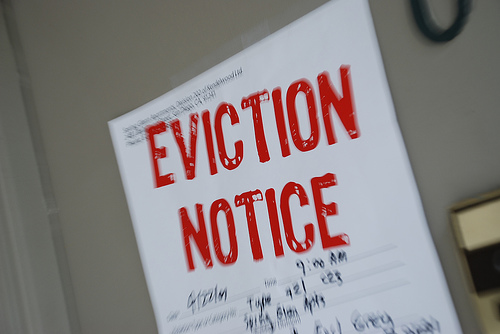Housing court — the epitome of inequality.
Two weeks ago, the New York Times published an article detailing the imbalance of power within housing court. According to the article, millions of Americans face eviction each year. Of those cases, 90 percent of landlords have legal representation while 90 percent of tenants do not. Without proper legal training, most tenants cannot win against attorneys and are, in turn, evicted from their homes.
How do we rectify the unprecedented number of evictions and, as a result, lessen the growing problem homelessness in our city? One solution, according to Matthew Desmond, could be “publicly funded legal services for low-income families in housing court.”
In 1963, the Supreme Court unanimously ruled on the landmark case Gideon v. Wainwright, which requires the defendants in criminal cases to have legal representation. The court judges insisted that without legal representation, the hearing would be unfair. Eighteen years later, the Supreme Court heard the case of Abby Gail Lassiter, which concluded that defendants in civil cases also required representation, but only specific types of cases where “the loss of physical liberty was at stake.”
While our laws protect those facing jail time, they do not protect against those facing homelessness. Each experience is undeniably torturous, yet we wonder how the court has decided that a prison-term is worse than a term on the street. Once someone becomes homelessness, changing that reality is incredibly challenging. According to the National Coalition for the Homeless (NCH), only 77% of homeless youth attend school regularly. The NCH also sites that 16% of the adult homeless population experiences severe and persistent mental illness. With the continued cuts to public assistance programs like Work Advantage, combating and overcoming homelessness is near impossible (especially in our post-Sandy reality).
Increased legal representation for all civil cases would also limit the number of landlord abuses. Take the tenants living in 1507 St. Johns Place in Brooklyn. They have received numerous threats from their receiver accusing them of not paying their rent. If the tenants were not already working closely with Brooklyn Legal Services due to the foreclosure of their building, there is a good chance they would have been evicted from their homes and thrown onto the streets.
Some may question the cost of implementing a publicly funded program that would give all defendants in civil cases the right to legal services. According to a 2010 report issued by the Task Force to Expand Access to Civil Legal Services in NY, providing legal assistance in civil cases increases federal benefits for low-income New Yorkers. The report estimates that in terms of benefits won and costs saved, the state would generate more than $400M. Not only would this type of program reduce the rising rates of homelessness, it would also give the city an opportunity to allocate much needed money elsewhere, including healthcare and employment (or other plans to build up long-term affordable housing in NYC!)
Providing representation for tenants in housing court is not only a monetary issue, but a moral issue. To ensure that all legal proceedings are as lawful as possible, we must ensure that both the prosecutor and the defendant are equally protected under the law. In order to have a truly fair outcome, equal representation is necessary.

There is an organization that has been advocating for the right to counsel in housing court for close to 30 years. Formally known as the City-Wide Task Force on Housing Court, it is now called Housing Court Answers (go to: http://www.cwtfhc.org ) and they provide assistance to unrepresented litigants as well as fighting for the true administration of justice in the court—with the right to counsel being one of the main reforms necessary. Please visit our website and join our campaign.
Reblogged this on Tenants Help Tenants.